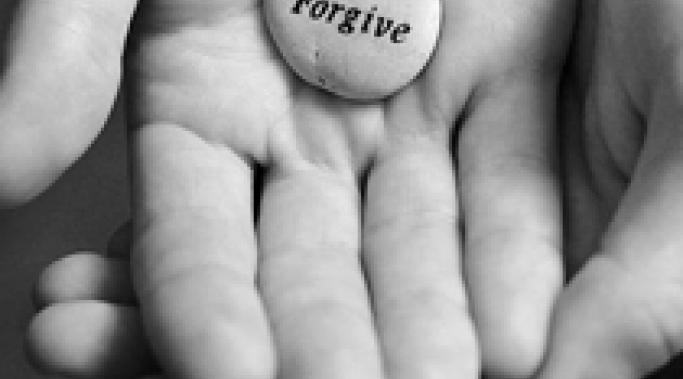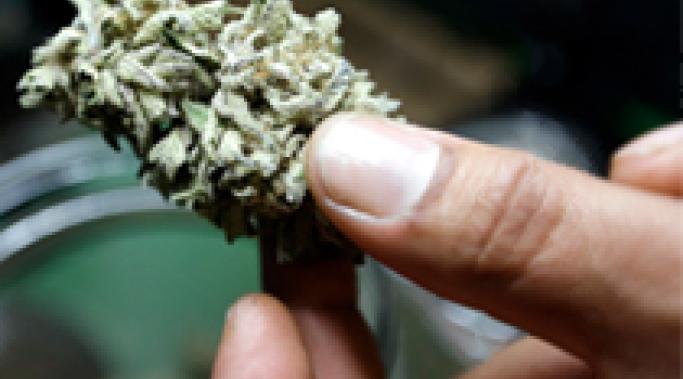I'll be blunt--Indianapolis is my city, and I love my city, warts and all. Recently a dominatrix-turned-political-activist was selling books at the farmer's market I frequent. Long story short, I now own an autographed copy of Spanking City Hall by Melyssa Hubbard. The book is a delightful romp through the world of kink and the lawsuit designed to stop it, ultimately culminating in a triumph of the little guy. I've learned many things from this book, including why sex should be safe to explore, why it's important to stand up for yourself even if it doesn't look like you've got a chance, and how some people just go out of their way to undermine you. These are all great lessons for a person with borderline personality disorder (BPD) to learn.
More than Borderline
Sometimes houses of worship are not the sanctuaries we need them to be. Many people of faith believe that mental illness is a spiritual problem, which hurts everyone involved. More Than Borderline's, Becky Oberg, endured two exorcisms at the hands of a charismatic non-denominational church, eventually leaving when she realized they would not accept her mental illness or her.
Sadly, one of my previous posts can be recycled. I wrote about whether or not people with severe mental illnesses should have firearm rights after the events in Aurora, Colorado (Should People with a Mental Illness Have Firearm Rights). Now there's been another killing spree in which mental illness may have been a factor. I would not be surprised if Elliot Rodger had a diagnosis of borderline personality disorder (BPD)--his difficulty in relationships and inappropriate anger are two symptoms of the disorder. It raises the question, "Is locking up people with borderline the answer?"
As a sexual assault survivor, I have an interest in cases of rape that make the news. Recently, here in Indianapolis, a man was convicted of several sex offenses, including rape. But there was no justice--the male judge looked at the victim and told her she had to forgive her attacker and move on, then sentenced her rapist to eight years of house arrest.
That judge has no idea what he asked her to do. But it raises an important question: Can we forgive when there is no justice?
If you look at my records from Richmond State Hospital, you'll see that I am a marijuana smoker. I don't think this should be part of my record since I smoked it only twice, both times for medical reasons. But because marijuana is not approved for medical use in Indiana, that apparently makes me a marijuana addict. It makes me wonder: When does drug experimentation become drug addiction?
I am a firm believer in the healing power of service; I've found it helps with my borderline personality disorder symptoms. In the years that I've done service, I've learned many things--for example, the week I spent in Haiti straight out of high school taught me I didn't know jack about how American foreign policy affects the poor, but I digress. Three lessons I've learned are: you get back what you give, someone always has it worse than you, and helping others brings us closer to our Higher Power.
Addiction can be one of the symptoms of borderline personality disorder. In my case, alcoholism both fuels and is fuelled by my psychiatric conditions. As I've progressed in therapy, I've learned that everything addiction told me is a lie.
We all know the joke that "normal" is just a setting on the dryer (it's also a street name here in Indianapolis), but let's face it--we have a normal (for us) mode of operation. Mental health professionals call this "baseline." Some people have high baselines and can pass for someone who does not have a psychiatric diagnosis. Others have a low baseline and wander around in public talking to themselves--I have a few neighbors like that. But we all have a borderline baseline.
One of my friends from AA relapsed recently. Her struggle has caused me to learn many things. One is that alcoholism is a progressive, deadly disease that is "cunning, baffling and powerful", and that you must always be on guard because alcohol relapse is easy, no matter how many years sober you have. The second is that you have to have a reason to stay sober, and you have to work at it. The third is that alcoholism relapse can happen to anyone.
Three times a week, I go to Alcoholics Anonymous (AA) meetings and say "My name is Becky, and I'm an alcoholic." I've been doing this for a little more than a year now, and the further along I get in sobriety, the more I learn. There are many myths about alcoholism, some of which I'm still learning to accept as myths. But recognizing these myths as such is crucial to recovery from addiction.









